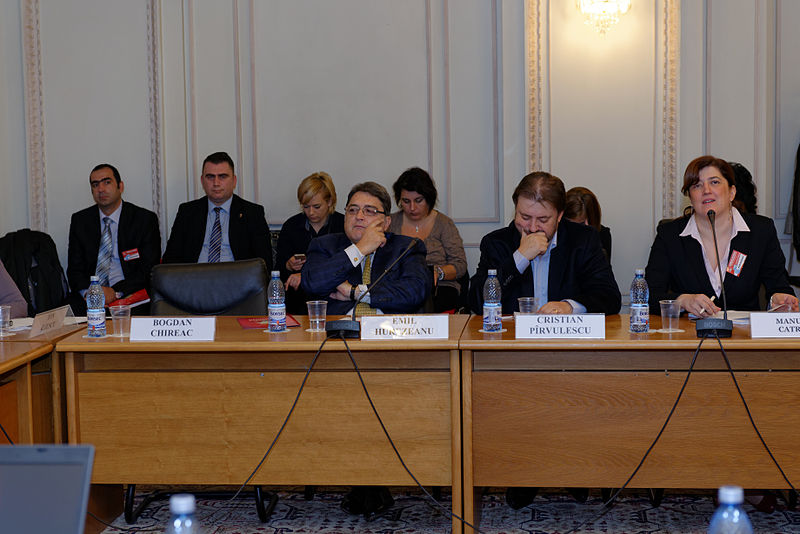
Cristian Pirvulescu
Cristian Pirvulescu is a Romanian political analyst known for his insights into the complexities of Romania's political landscape, particularly in the context of recent crises. He has commented on the implications of political events, such as the resignation of President Klaus Iohannis, suggesting that such actions may exacerbate existing tensions rather than resolve them. His expertise often highlights the influence of extreme right factions and the impact of public sentiment on the political process in Romania.
Global Media Ratings
Countries Mentioned
| Country | Mentions | Sentiment | Dominance | + Persistence | x Population | = Reach | x GDP (millions) | = Power |
|---|---|---|---|---|---|---|---|---|
| Romania | 1 | 5.00 | 0.09% | +0% | 19,237,691 | 17,979 | $250,000 | 234$ |
| Totals | 1 | 19,237,691 | 17,979 | $250,000 | 234$ |
Interactive World Map
Each country's color is based on "Mentions" from the table above.
Recent Mentions
 Romania:
Cristian Pîrvulescu explains the abrupt communication style of the government.
5
Romania:
Cristian Pîrvulescu explains the abrupt communication style of the government.
5
 Romania:
Cristian Pîrvulescu is a political analyst who commented on the implications of Ludovic Orban's role as a presidential advisor.
5
Romania:
Cristian Pîrvulescu is a political analyst who commented on the implications of Ludovic Orban's role as a presidential advisor.
5
 Romania:
Cristian Pîrvulescu believes the CSM's decision to file a complaint against Oana Gheorghiu is disproportionate and based on a fragile legal basis.
5
Romania:
Cristian Pîrvulescu believes the CSM's decision to file a complaint against Oana Gheorghiu is disproportionate and based on a fragile legal basis.
5
 Romania:
Cristian Pîrvulescu believes the PSD Congress was more of a reaffirmation exercise than a renewal.
5
Romania:
Cristian Pîrvulescu believes the PSD Congress was more of a reaffirmation exercise than a renewal.
5
 Romania:
Cristian Pîrvulescu explains why social perception lags behind economic data in Romania.
7
Romania:
Cristian Pîrvulescu explains why social perception lags behind economic data in Romania.
7
 Romania:
Cristian Pîrvulescu is the dean of the Faculty of Political Sciences at SNSPA and comments on the CCR's decisions regarding the PNRR.
5
Romania:
Cristian Pîrvulescu is the dean of the Faculty of Political Sciences at SNSPA and comments on the CCR's decisions regarding the PNRR.
5
 Romania:
Cristian Pîrvulescu highlights the uncertainty surrounding the future of the Romanian Executive.
5
Romania:
Cristian Pîrvulescu highlights the uncertainty surrounding the future of the Romanian Executive.
5
 Romania:
Cristian Pîrvulescu emphasizes the need for a predictable fiscal strategy and investments in critical infrastructure for Romania's economic survival.
8
Romania:
Cristian Pîrvulescu emphasizes the need for a predictable fiscal strategy and investments in critical infrastructure for Romania's economic survival.
8
 Romania:
Cristian Pîrvulescu stated that it is too early to draw firm conclusions about Nicușor Dan's foreign activity.
5
Romania:
Cristian Pîrvulescu stated that it is too early to draw firm conclusions about Nicușor Dan's foreign activity.
5
 Romania:
Cristian Pîrvulescu analyzed the absence of public attendance at Iliescu's funeral.
5
Romania:
Cristian Pîrvulescu analyzed the absence of public attendance at Iliescu's funeral.
5